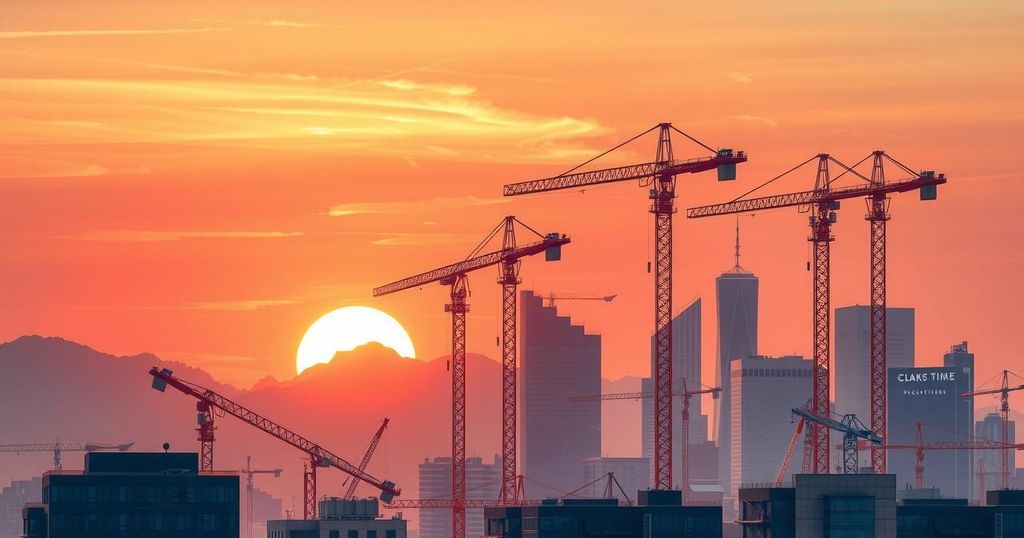A recent poll reveals that, despite ongoing violence, 70% of Syrians remain optimistic about their future. Interim President Ahmed al-Sharaa’s leadership shows potential, but the economy faces dire challenges partly due to persistent Western sanctions. Removing these sanctions might allow for necessary reconstruction efforts, improving the situation for the Syrian people.
In light of recent events in Syria, a comprehensive public opinion poll reveals a surprisingly optimistic sentiment among residents regarding their future. Following decades of authoritarian rule by the Assad regime, which ended four months ago, the Syrian economy remains in disarray, and sectarian violence persists. Nevertheless, 70% of surveyed individuals express hopefulness, while 80% report feeling freer than under Assad, and two-thirds acknowledge improvements in security despite ongoing conflicts.
These survey findings, while needing cautious interpretation given Syria’s troubled history with free speech, highlight a significant trust in interim President Ahmed al-Sharaa. Since assuming office in late January, he has made strides to fulfill expectations by assembling a new interim cabinet, which includes representatives from various minority groups and technocrats. Although concerns remain regarding his centralized approach to power, the cabinet’s composition offers a promising outlook for governance if empowered effectively.
Reviving Syria’s devastated economy presents a formidable challenge for Mr. Sharaa, as 58% of poll respondents indicate economic stagnation or decline since his leadership began. The absence of civil servant wages and limited cash flow exacerbate these economic conditions. Without timely improvements, his support may swiftly diminish.
A significant barrier to economic recovery is the Western sanctions still imposed on Syria, initially aimed at isolating the Assad administration but now stifling the efforts of the new government. These restrictions hinder foreign investments essential for reconstruction and restrict access to the global banking system, preventing Syria from engaging in international trade and commerce. Currently, the nation must rely on Russian oil under sanctions, further complicating its economic revival.
While there are valid concerns about Mr. Sharaa’s extremist past, the risks of inaction from the West could be far more detrimental. Continuing economic stagnation might empower extremists and incite further violence. The possibility of conditional relief from sanctions could provide a necessary lifeline, allowing for reconstruction while retaining mechanisms to reinstate sanctions should Mr. Sharaa deviate from his commitments. Thus, it is crucial for Western nations to reconsider their stance and support the Syrian populace in their pursuit of rebuilding their society.
In conclusion, the recent poll indicates a remarkable optimism among the Syrian populace despite the country’s severe challenges. The interim president Ahmed al-Sharaa has taken significant steps towards governance, although the road to economic recovery remains fraught with hurdles, primarily due to existing Western sanctions. Lifting these sanctions could facilitate a much-needed reconstruction effort, providing Syrians with a viable chance to rebuild in the aftermath of conflict.
Original Source: www.hindustantimes.com






